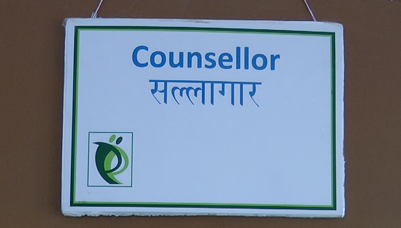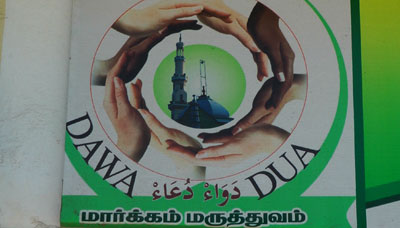
In the last few years, around 1,35,000 Indians have committed suicide every year. Mental illnesses, especially depression, is one of the leading causes. The segment most affected is the young—those who belong to the 15 to 30 years age group. Veena Ail, a loving mother, shares what it means to lose a child to suicide. Her elder daughter committed suicide as a teenager and did not give any hint to her family of what she was going through. Dr Harish Shetty, a leading psychiatrist in the country, explains how sometimes, it is not immediately possible to recognize when the mind is fractured. Hence, it is important to be clued to the signs of depression, when there is no joy in living and even the smallest of tasks seem very difficult. Modern society’s attempt to compress a 100 years of living within 10 years is affecting mental harmony. Aruna Prakash and Yatin Nadkarni, both of whom attempted suicide, give us a glimpse into the thoughts and feelings of a person suffering from acute depression. (Watch: Fractured Mind)
Ratna Chibber’s is a story of a sister’s love and devotion to her brother who has recovered from schizophrenia. She chose her brother’s happiness over her own marriage and stood by him throughout his recovery. Today, her brother is gainfully employed in her own company. She also co-founded an organization called Asha which runs a rehabilitation home and helps recovered patients to be self-employed. Dr Sudipto Chatterjee a psychiatrist sheds light on serious mental illnesses like schizophrenia, bipolar mood disorder, clinical depression and paranoia. He also stresses on how in most cases, recovery is possible. (Watch: A Sister’s Love). However if the patient has to be institutionalized, this recovery can only take place in mental institutions which are run in a humanized environment. Ratnaboli Ray, the founder of Anjali, talks of the abysmal conditions of mental hospitals in West Bengal where patients were denied basic human rights. Anjali has helped the mentally ill to empower themselves and fight for their rights. (Watch: Fighting for their rights).
In some parts of the country, mental hospitals are still run like jails, and patients treated like inmates. Instead of helping them, society further stigmatizes them and their family. The families, who are the caregivers, are weighed down by an enormous burden. Seema Jain from Chandigarh whose sister suffers from schizophrenia talks about what she has had to go through to care for her sister. She talks about how families desperately need better social support systems. (Watch: Caring for Caregivers). Bhargavi Davar, the founder of Bapu Trust, understands this very well. Her organization works within the slums of Pune, trying to create a circle of support for those suffering from mental illnesses and their families. (Watch: Circle of care). Communities can play a big part in treating mental illnesses. This has become the cornerstone of Parivartan Trust's work as well. (Watch: Change makers).

Another institution which has a radically different approach to mental illness is Athma Shakti Vidyalaya. The organization believes that the therapist should parent the patient through non-judgemental love, touch therapy, and emotional bonding. Community living and sharing of work is part of the therapy. Inspired by the work of Athma Shakti Vidyalaya, Bipin Malia and his wife who have a daughter suffering from schizophrenia started Atmaviswas Vidyalaya, one of the finest rehabilitation homes in Valsad, Gujarat. (Watch: Holistic healing).
Shraddha Rehabilitation Foundation also runs a home in Karjat, Maharashtra, to treat the mentally ill found on pavements and to eventually reconnect them to their families. (Watch: Of love and shraddha). Similar work in being done in Chennai by the Banyan, which rehabilitates the mentally ill left abandoned on the streets. (Watch: Spreading its roots)
National Institute of Mental Health and Neurosciences (NIMHANS) in Bangalore is one of the most progressive mental health institutions in the country and has redefined the way a mental institution is run. However, most people still believe that mental illnesses are a result of possession by evil spirits and hence believe in witchcraft or exorcism to cure it. The mentally ill are taken to temples, dargahs and churches for miracle cures. Pandit Shambhunath Shukla, a pujari from Mumbai, talks of how he advises people to see a doctor if they have mental illnesses. Saiyyed Chhotamiya from the Mira Datar Dargah in Ahmedabad talks of the unique ‘Dava and Dua’ programme where the mentally ill are provided medical help and medicines within the premises of the dargah, while keeping their faith intact. Sister Lucy Kurien, the founder of Maher, which runs homes for the mentally ill, the elderly and destitute women and children, explains how besides prayers, it is crucial to seek medical help. Another important aspect is the rehabilitation of those who have recovered. Parivartan Trust has organized community-based rehabilitation programmes for those who have recovered. (Watch: Faith and Medicine). Another inspiring story is that of Murugan, a rickshaw driver, who rescues the mentally ill from the streets of Kochi and provides them shelter at a home he has started. (Watch: Saviour on the streets).
And if there is an important medicine for mental health which is free and which we all possess, it is laughter. Dr Madan Kataria explains how practising laughter yoga for just 10–15 minutes a day is invaluable for happiness and mental health. (Watch: Therapy for Free).